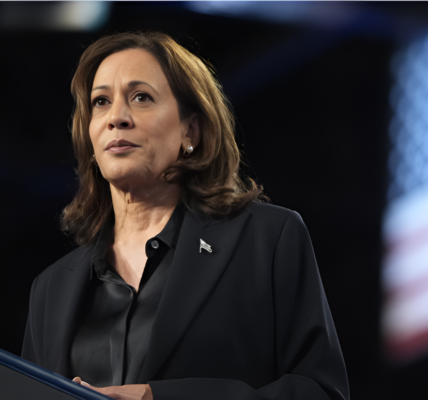
As the 2024 presidential election approaches, President Joe Biden’s campaign is offering several arguments to justify his continued candidacy. Chief among them is the claim that replacing him at this stage would be impossible or would lead to chaos, handing a victory to Donald Trump. However, as someone who has been involved in Democratic conventions for years and served as President Barack Obama’s White House counsel, I can confidently say that this is not true.
It would actually be in the best interests of the Democratic Party and the country for Biden to release his delegates and allow them to select a new candidate to face Trump. Biden is not the strongest candidate, and there is plenty of time for the party to find a better one.
The Rules Are Clear
Biden’s team argues that the rules prevent his replacement, but that’s not the case. While Biden cannot be denied the nomination without withdrawing or becoming incapacitated, the Democratic National Committee (DNC) has the authority to fill a vacancy under its existing rules if he decides to step aside.
According to the DNC’s national charter, Article 3 gives the DNC responsibility for the affairs of the party, including filling presidential and vice-presidential vacancies. Biden’s withdrawal would not disrupt the convention’s proceedings. The delegates, who have already been chosen, would still meet as planned, and the DNC’s Rules Committee would organize the event, taking into account an open convention if necessary.
The Process for Replacing Biden
If Biden were to release his delegates, there would be a number of potential candidates to take his place, including Vice President Kamala Harris, Governors Gavin Newsom, Gretchen Whitmer, Josh Shapiro, JB Pritzker, Andy Beshear, and Secretary of Transportation Pete Buttigieg. These candidates could formally announce their interest in running, registering with the DNC’s Rules Committee. They would have over a month, from mid-July to the start of the convention in late August, to make their case to the delegates.
The campaigns would likely target individual delegates, focusing on key states like California, New York, and Illinois, while hosting regional events and televised debates. Fundraising and staff recruitment would also be key elements, and the Association of State Democratic Party Chairs would help facilitate candidate access to delegates.
Determining Eligible Candidates
One of the main challenges would be determining which candidates are eligible to be nominated. It would be a mistake for a small group of Democratic officials to select a list of candidates behind closed doors. Instead, the delegates themselves should decide who qualifies. A straw poll at the start of the convention could identify the top contenders and determine which candidates would be formally nominated.
Uniting the Party
Some argue that an open convention would divide the party, referencing past contests like 1968 and 1980, where divisive conventions resulted in narrow losses for the Democratic nominee. However, the divisions within the Democratic Party today are far less severe. The party is united in its desire to defeat Trump, and the potential candidates vying for the nomination are far stronger than those in 1968 or 1980.
While there may be challenges, including potential litigation, the courts have generally avoided interfering in political party decisions. The Democratic Party is more than capable of selecting a new nominee and emerging from the process stronger than before.
A Stronger Candidate
If Biden chooses to step aside, there is enough time to identify a strong candidate who can unite the party and successfully challenge Trump. The process would be competitive and exciting, but the eventual nominee would be a much stronger contender than Biden is today. Most importantly, that candidate would be in a better position to defeat Trump and lead the country forward.
Replacing Biden is not only possible—it could be the key to securing a victory in 2024. The Democratic Party has the tools, the time, and the talent to make this transition happen.





